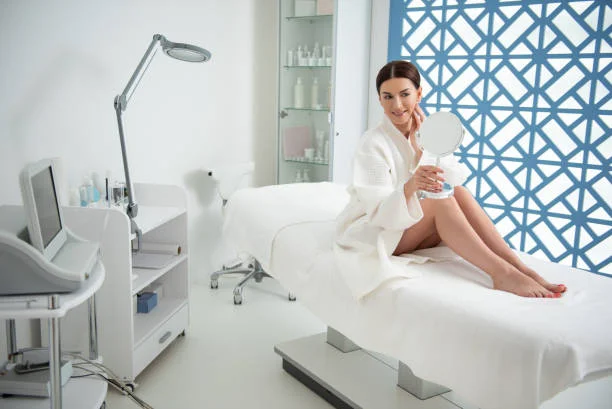There’s something comforting about a quiet appointment, the kind where your phone stays in your bag and the world slows down for a bit Skin clinic.
For many Australians, that moment now happens inside a skin clinic.It’s not about vanity. It’s about steadiness.
Once seen as a luxury or a quick fix, professional skincare is becoming part of how people look after their mental and physical wellbeing. The line between “beauty” and “health” has blurred, and it’s surprisingly natural.
Why Skin Care Feels Different in 2025
For years, looking after your skin meant reacting to a breakout, dryness, something you wanted gone by next week.
Now, the idea is slower and softer. It’s about caring for skin before it starts asking for help.
That shift has a quiet emotional layer too. Skin is what we show the world first. When it’s unsettled, so are we.
A national survey found that 57 percent of Australians feel anxiety when they notice visible signs of ageing, and 62 percent say it impacts their confidence. Another study published in the Journal of Dermatological Research and Practice found that people with skin conditions like eczema or psoriasis often describe emotional distress that goes far beyond the surface.
So while skincare still has to do with how we look, it’s becoming just as much about how we feel.
Inside the Modern Skin Clinic Experience
The difference is clear the moment you walk in.
There’s no fluorescent glare or chemical smell anymore. Instead, it’s quiet, softly lit, and the air feels fresh and slightly cool. You’re greeted by name, offered water, and given time to breathe before anyone starts talking treatments.
Clinics today are changing the rhythm of care. Appointments start with questions about sleep, diet, stress, and daily habits. The specialist studies your skin up close, then talks to you like a teammate, not a salesperson.
There’s science behind it, sure, but also empathy. Most clients say the consultation alone feels like therapy for their skin.
And that’s exactly what modern self-care looks like practical help with a human tone.
This related post connects perfectly with what you just discovered — explore more!
Technology That Listens First, Acts Second
The equipment looks high-tech, but it feels surprisingly calm. You can hear a quiet hum, a faint click as the light pulses. The idea isn’t to shock the skin, it’s to work with it.
Laser and light treatments now focus on cooperation rather than correction. They warm gently, not burn. The light feels steady, like sunlight filtered through glass.
You can tell when it’s done right. The skin doesn’t feel tight or raw. It feels alive, soft, steady, and comfortable. Results don’t shout for attention; they settle in quietly over time, like your face finally matching how you feel.
The Psychology of Maintenance
One of the biggest changes in self-care today is the idea of consistency.
People are beginning to treat their skin the way they treat their minds or bodies, something that needs regular check-ins.
Clients don’t just book when something’s wrong anymore. They book because it feels good to pause, to let someone else take over for a while.
That rhythm showing up every few weeks, seeing small changes, feeling seen yourself can become its own form of mindfulness.
You walk out not just looking fresher, but lighter.
The Subtle Power of Routine
Ask anyone who’s been seeing a clinic regularly for a while and they’ll tell you: it’s not only about smoother skin. It’s about predictability.
Life feels chaotic enough, and that one constant of the clinic, the people, the familiar scent of eucalyptus or lavender becomes a grounding ritual.
There’s something deeply human about that kind of habit. It doesn’t demand discipline, just care.
And that’s the beauty of it.
Takeaway
Self-care is changing shape. It’s not only about rest or retreat anymore it’s about taking responsibility for how you feel in your own body.
Visiting a skin clinic might look like a small decision, but it represents something bigger. A moment of attention, a pause that says, “I’m allowed to take care of myself.”
You walk in for better skin. You walk out with something better than that, a sense of ease that stays.
Frequently Asked Questions
1. Can professional skincare actually reduce stress?
It can. Studies have found that visible improvement in skin health can ease anxiety and improve confidence levels.
2. Is it suitable for all skin types?
Most clinics customise treatments, using patch testing and adjustable technology to suit individual needs.
3. How often should you visit?
Many clients see progress with monthly sessions, followed by maintenance every two to three months.
4. Is professional care better than skincare at home?
They work together. Clinics handle the deeper layers, while your daily routine supports ongoing balance.
5. Can this really count as self-care?
Absolutely. Taking time for your skin is an act of respect for yourself. It’s calm, simple, and real.
Keep your curiosity burning — explore more stories that fuel your creative growth.







